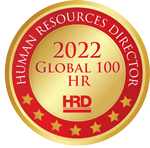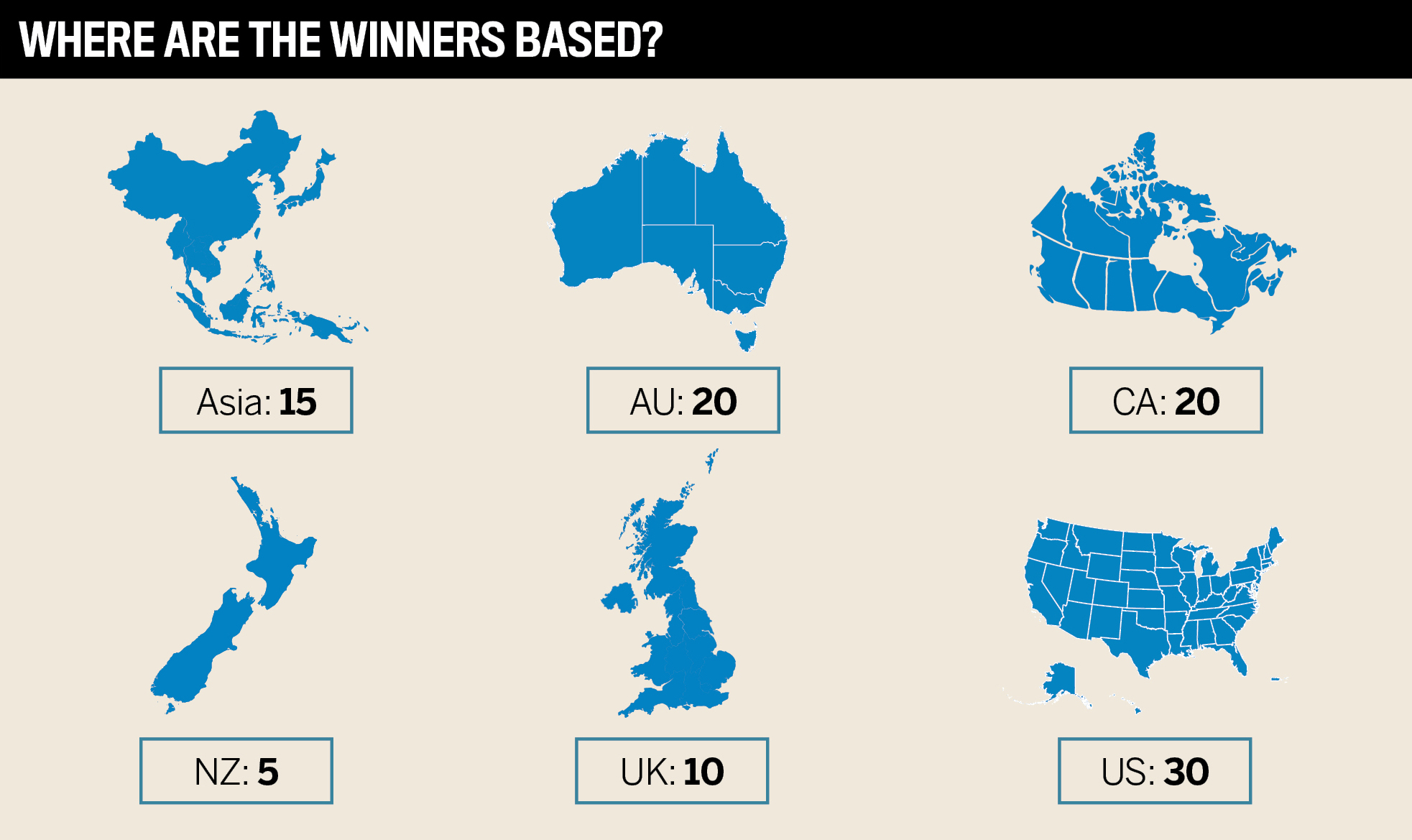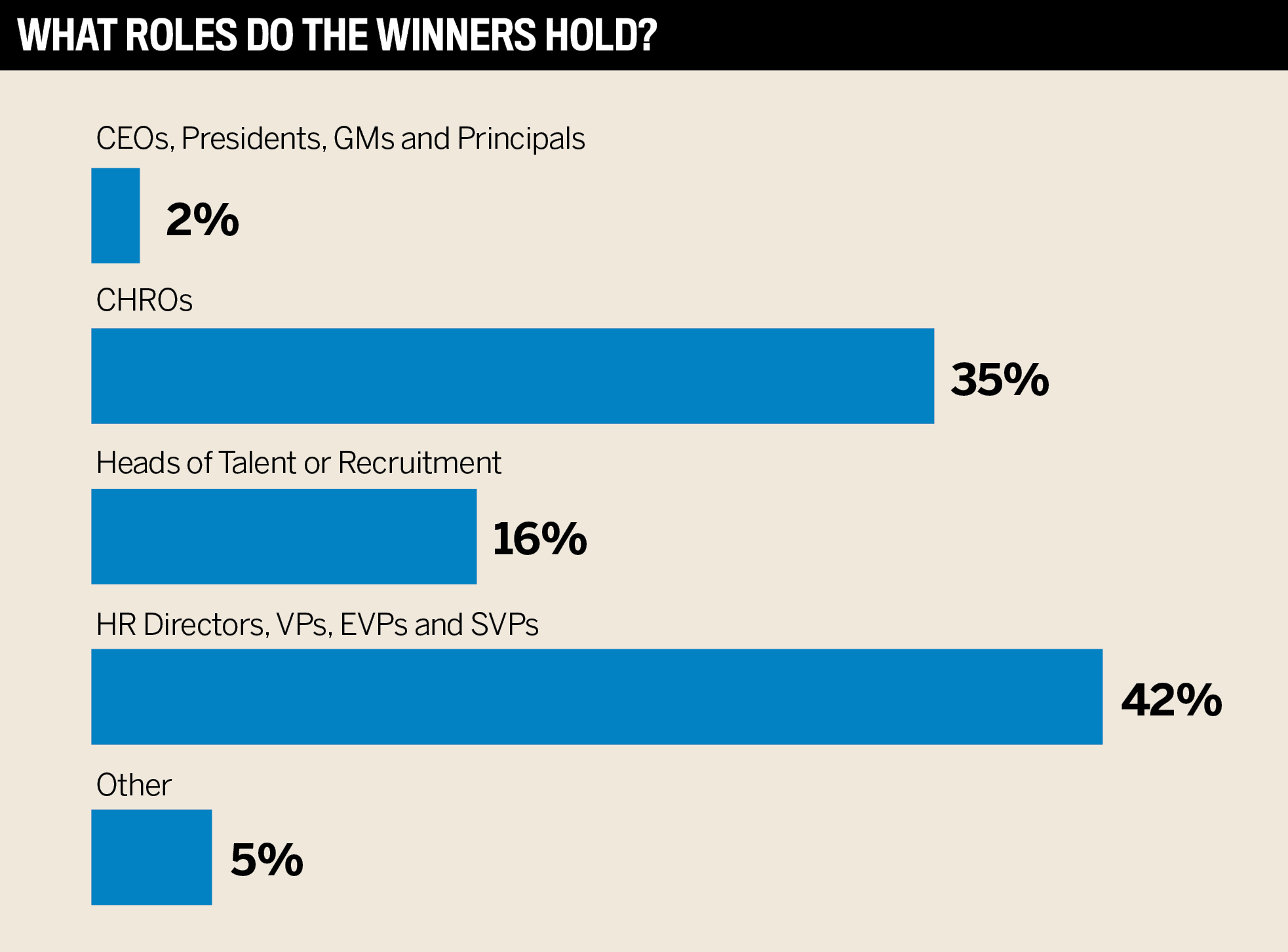

Jump to winners | Jump to methodology
The past couple of years have been revolutionary for HR leaders and their teams. The pandemic changed where and how organizations work and our expectations around work-life balance. While it’s been exhausting, for HRD’s Global 100 HR leaders, it’s also been incredibly rewarding, and their outstanding contributions are recognized here. As part of the 2022 Global 100 awards, HRD conducted thorough research into the sector, examining the challenges of the past year, HR’s trajectory and how organizations can be better prepared.
O.C. Tanner’s 2022 Global Culture Report highlighted the dual role that meaning and leadership play in creating a safe space for employees. Leadership teams are also burning out, with managers 42% more likely to say work interferes with their ability to be happy.
“Community and fulfilment were two of the main themes running through our report this year,” says Meghan Stettler, director of the O.C. Tanner Institute and one of HRD’s Global 100 winners. “In order to create a culture and an organization where employees feel connected, leaders must focus on the role recognition plays as well as looking at fulfilment levels.”
For HR leaders, one of the challenges was how to safeguard organization-wide mental health while protecting their own wellbeing and building meaningful connections.
“There has been a substantive increase in the frequency of challenges that employers have had to deal with,” says Raeleen Manjak, director of HR at the City of Vernon, BC, Canada, and another Global 100 winner. “Employees may feel a lack of engagement if the workplace does not focus on health and wellbeing during a turbulent and extended period of ambiguity. People are also looking for transformational leadership, which must include facets of meaning, connection and fulfilment. It’s about building a culture that is meaningful.”

HRD’s Global 100 winners navigated these trying times with determination and compassion, leading their organizations to thrive. The pandemic may have been “the most stressful time in HR leaders’ careers,” but it also brought unexpected benefits. The talent market is intense right now, but it’s also global, and remote or hybrid models are the norm. This worldwide talent pool means employers can hire anyone, anywhere, at any time.
“The pandemic taught organizations that it's OK to hire people who don't sit in the office five days a week,” says Matt Burns, CEO of BentoHR. “Inflationary pressures created financial pressure. This means it’s more financially feasible to hire somebody in a foreign capacity than it is to hire a full-time domestic resource. Employers can now acquire talent from all around the world without having to be worried about the benefits and all the additional costs that may come along with them.”
HRD’s research found one of the central themes running through the sector was the changing face of HR. The profession has gone from an administrative “nice to have” to a core strategic business partner. HR leaders are now intrinsically linked to all facets of an organization. Our Global 100 winners now wear many hats – and while it’s been a great learning curve, it’s also led to overwork and stress. HR professionals need to balance their own mental health with their C-suiters’ requests.
“That overall holistic experience in the five areas of wellbeing applied across the HR sector would be a positive change,” says Patricia Hubbard, senior consultant at Gallup. “If we can focus on the career, community, social, physical and financial wellbeing of each person recruited and maintained in the HR sector, it would be a positive shift for the future.”

Looking ahead to 2023, employers will have to realign their cultures and leadership teams to drive meaning and hold on to top talent. With employees willing to jump ship or even take a pay decrease to find meaningful work, it’s vital HR leaders imbue an authentic culture – even in remote work.
“I’ve always had a firm belief that HR leaders need to lead from the front, not from the back,” says Global 100 winner Gena Restivo, vice president of HR at AstraZeneca. “Part of that is thinking of themselves as the true strategic ambassadors for the organization. How can we define our value proposition? Why should people join your organization? What is your commitment to them? How will you develop them? How do you support them? How do you compensate them? How do you build these inclusive cultures? HR leaders need to tell that story from the front of the room, which is something we need to continue to build on as a sector.”